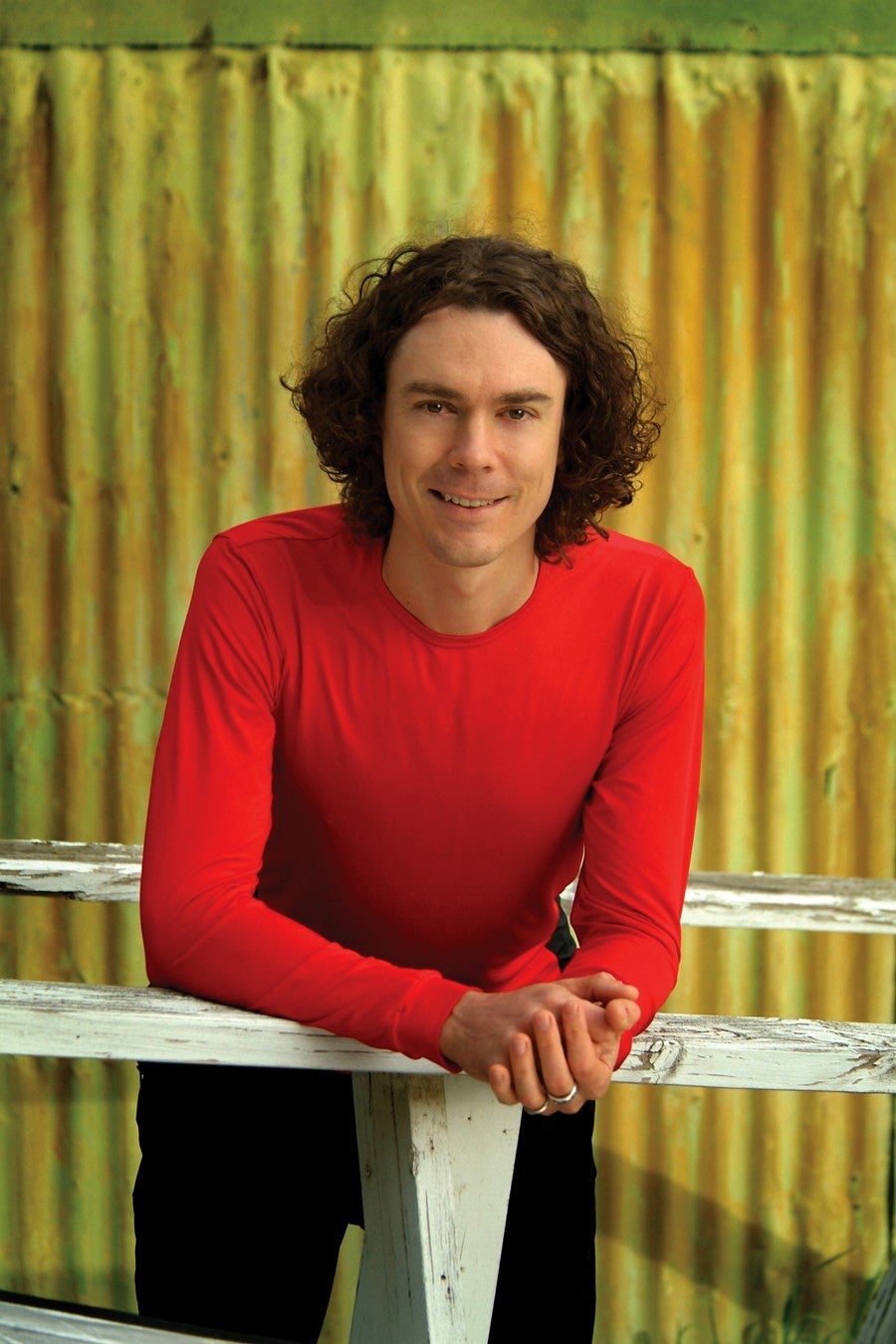One on One with Scott Jurek

Champion ultramarathon runner Scott Jurek, 34, has dominated the sport by winning some of the world’s toughest footraces, including the 100-mile Western States Endurance Run seven times in a row. And he’s done it all on a vegan diet. He’s even testified before Congress about how his diet benefits his athletic performance. “I’m always going to be figuring out a way to keep people active and taking care of their bodies,” says the licensed physical therapist.
Q: What inspired your love of running?
A: I grew up in a family that spent a lot of time outdoors. I got into Nordic ski racing in high school, and I would do three-hour runs on the trails to get ready for the winter season. Then a friend of mine, who had just run his first 50-miler, said, “You’ve got to try this out.” I signed up for my first road marathon and a month later did my first 50-miler. It just kind of took off from there. It combines my love for being in the mountains and the woods with challenging myself athletically.
Q: What is the most grueling race you’ve competed in?
A: It’s probably a toss-up between the 100-mile Hardrock Endurance Run and the Spartathlon. Hardrock [in which Jurek holds the course record] is an insanely tough race because of the altitude. It’s like running while breathing through a straw. Not only are you sucking wind, you’re also traversing rocky, snow-covered terrain. Spartathlon [which Jurek won twice] is grueling in a different way because it’s so long—153 miles on pavement—and because it’s usually hot in the Greek countryside.
Q: What motivates you to take on such extreme challenges?
A: Ideally, I think the goal is to reach that state where nothing else matters. I’m so focused on the simple task of putting one foot in front of the other. Though my body is saying, “It’s too hot, it’s too cold, it’s too hard,” there’s a meditative aspect to the sport. The extreme environments allow for that inner focus to be much more sharpened.
Q: Are there “power foods” that really get you going?
A: I’m a big fan of barley grass juice. I’m also a big fan of smoothies: I’ll mix bananas, almonds, fermented soy protein powder, hemp protein powder, and blueberries to make this dense shake to boost my caloric intake.
Q: You’ve been a vegan since 1999. What led you to make that choice?
A: I’d been trying out vegetarianism for a year and a half maybe, and then I read [former cattle rancher-turned-vegetarian and food-safety activist] Howard Lyman’s book Mad Cowboy. After learning about the environmental impact of the dairy industry, I decided to take the full plunge into veganism.
Q: How has being a vegan affected your performance as a runner?
A: I noticed changes in my body’s ability to bounce back after hard workouts. Following a vegan diet got me eating more whole foods, and because of that, my muscles don’t get as sore and tired. I can complete my workouts and also do back-to-back days, which are important with ultramarathoning: I work out hard two days in a row to simulate what it’s like to be at the 80th mile of a 100-mile race. I’ve spoken to fellow vegetarians who went back to eating meat because they felt like they weren’t as strong. But many people just don’t take in enough calories and variety of foods. Or they get fed negativity from coaches or fellow athletes. It’s important that there are athletes like myself out there saying, “You can do this and you can do it right.”
Q: Have coaches or fellow runners expressed skepticism about your diet?
A: I’ve definitely had people give me a hard time about it, but I was churning out top performances year after year, so it was hard to argue with me!